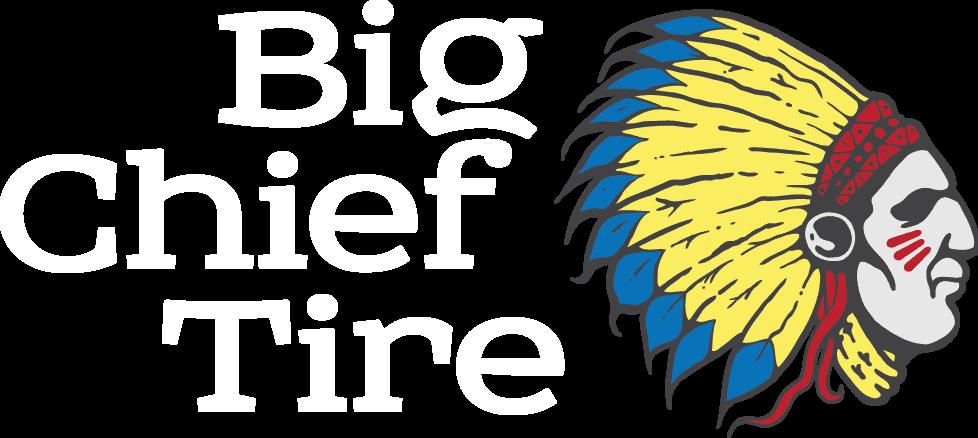DEVIL’S ADVOCATE

Eight students. Eight stories.


Eight students. Eight stories.
By OSCAR STONE, Staff Writer
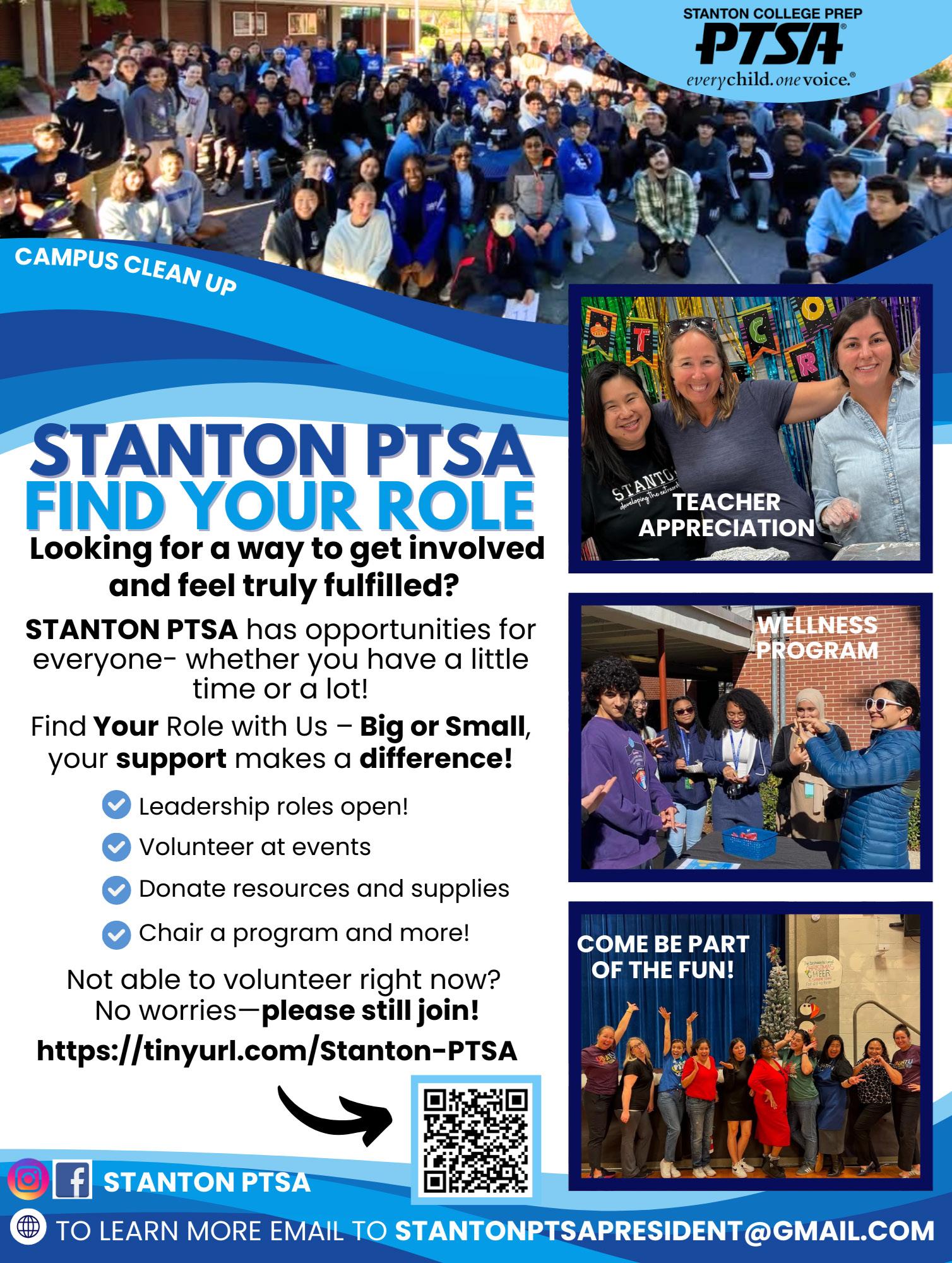
Adviser: Larry Knight
Editor-in-Chief: Grace Larson
Managing Editor: Shravya Nalla
Layout and Design Editor: Amani Okero
Business Manager: Katya Sniriova
Digital Media Editor: Rowan Kershner
Assoc. Photography Editor: Garrett Lawrence
Assoc. Digital Media Editor: Katie Wong
Assoc. Business Manager: Jade Bateman
Assoc. Art Director: Amina Umar
Videographer: Arvind Mukund
Section Editor (Features): Lindsay Johnson
Section Editor (Arts & Ent.): Erica Truong
Section Editor (Opinions): Emily Zickuhr
Section Editor (Sports): Mena Alchi
Staff Writers: Heba Akhdar, Gabrielle Dosdos, Audrey Parman, Ramkumar Sridhar, Oscar Stone, Sriya Vemuri, Ashley Wang, Elle Wight
Staff Photographer: April Horn, Camille Knight
The Devil’s Advocate is searching for contributing writers, photographers, artists, and filmmakers. Visit our Instagram @scpnewspaper or contact Editor-in-Chief Grace Larson gracelar924@gmail.com to complete an application for the chance to be featured on our website or in a print issue.
Ads and Sponsorships
The Devil’s Advocate is dependent on our advertisers and our sponsors. When you purchase an ad with us, it reaches a diverse student population that can help your business. We can also design your ads. Our prices are: $45 (1/4 page), $70 (1/2 page), $125 (full page), $150 (back page). For an additional small fee, we can advertise your business digitally. Contact Business Manager Katya Sniriova at sniriovakatya@gmail.com or Adviser Mr. Larry Knight at knightl1@duvalschools.org.
By Audrey Parman
Follow Us on Social Media
Twitter: @scpnewspaper
Instagram: @scpnewspaper
YouTube: Devil’s Advocate Newspaper
Facebook: Stanton Devil’s Advocate
Spotify: @scpnewspaper
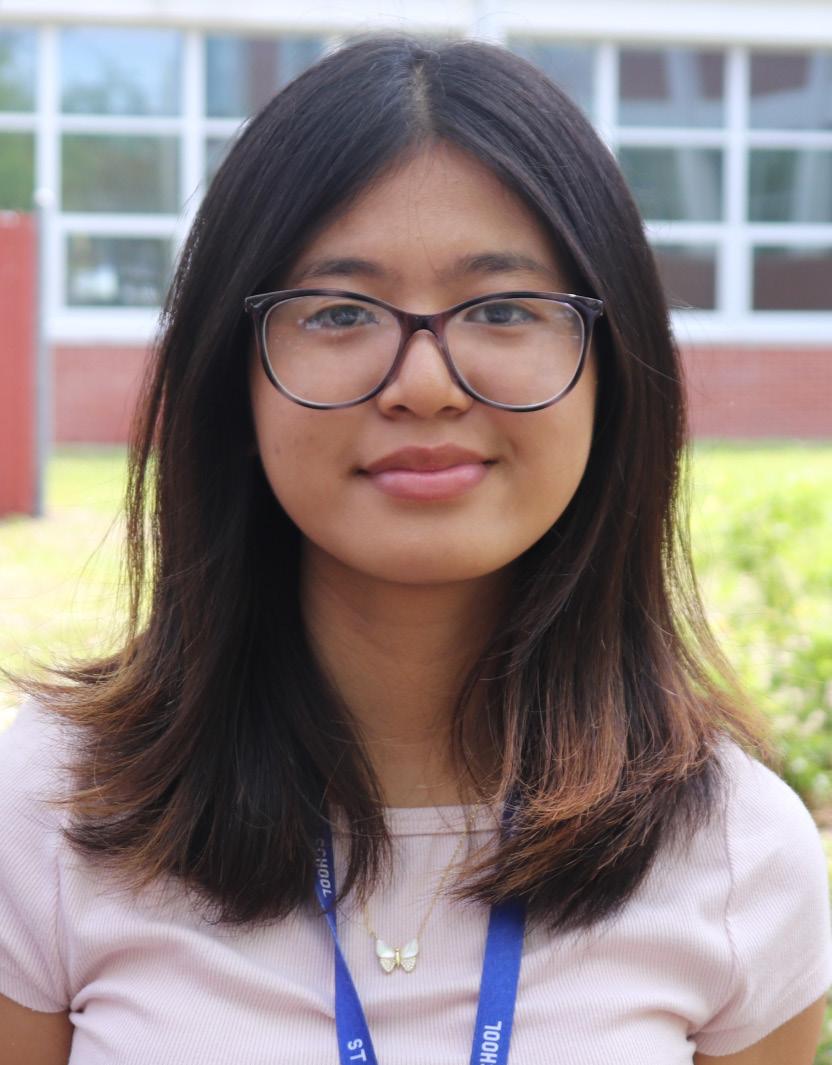
“When I was born in Thailand, my original name was Jessica, but they put Rhoda on my birth certificate. Growing up, [I] was always [referred to as] Jessica. When I came to America, my mom told me my name was going to be Rhoda, [and that] I cannot say my name is Jessica. My name was always meant to be Rhoda, it was changed last minute because my grandpa [wanted my name to be Jessica]. It is weird because one time at a family gathering when I was younger one of the uncles who knew me [saw me as] Jessica, so they were confused if I was Rhoda or Jessica. [I think] immigration changed how I thought about my identity.”
Audrey Parman
By Grace Larson
Stanton’s diverse student body is
Concerns about the future of education grow as President Donald Trump reshapes education policy.
By Gabrielle Dosdos
Elective courses foster creative thinking and develop opportunities for the future, making them important to a student’s education and overall well-being.
By Heba Akhdar
Sriya Vemuri


Students should not double science, as it leads to significant stress with no real benefit to their education.
WHAT IS CHANGING IN YOUTH
By Ramkumar Shridar
The U.S. is falling back on their educational scores. Families are fearing the recent ICE deportations. Youth sports are changing in many different aspects.
By Ashley Wang
We explore whether modern art is real art.
of




By AUDREY PARMAN, Staff Writer


iiiiiSan Marco Books and More opened in 1972 in its namesake neighborhood and is now run by the Molyneaux family. As the name of the store suggests, this place provides more than books. It offers book clubs operating in partnership with the Museum of Science and History, Assumption Catholic Church, and Florida House on Capitol Hill. It also hosts events such as book release parties and book signings, including several local author signings. At schools such as Julia Landon College Preparatory School, San Marco Books and More hosted the Spring Into Reading Book Fair to promote literacy.
iiiiiThrough partnering with these organizations, as well as with others like the Jacksonville Public Library, the store has long contributed to the accessibility of books in its community and paying it a visit is an opportunity to support a local bookstore.
iiiiiThroughout Jacksonville, Fla. are various locations brimming with the creative works of its residents. Some locations are more widely known by students at Stanton College Preparatory School, who are likely familiar with areas such as the Cummer Museum or the Florida Theatre. In addition to these, however, other artistic establishments in the city have much to offer.
iiiiiAmong these venues featuring different art forms, Friday Musicale, a historic concert hall, continues to host a variety of musicians. For the visual arts, Yellow House is an organization that displays the works of numerous local artists. The Riverside Arts Market also features visual art, bringing diverse creators to a central location where they can sell products of their craft. To experience theater, the Alhambra Theatre and Dining provides a stage for entertainers to perform. In addition, local book store San Marco Books and More displays the city’s literature. Overall, Jacksonville is a vast city but these places capture glimpses of its culture.

iiiiiSince 1967, the Alhambra Theater and Dining has been beloved in the Arlington area for its theater and food. The Alhambra is the oldest dinner theater in the United States to remain in operation. Now under Craig Smith and Tod Booth, the managing partner and creative director respectively, the theater showcases an assortment of performances. iiiiiThis place has shown many theater classics, such as “West Side Story” earlier this year. Beyond this, the Alhambra hosts bands and puts on less conventional plays. For instance, in March, the Fleetwood Mac tribute band TUSK played, and next fall, “The Mystery of Edwin Drood,” based on the Charles Dickens’ tale, will have audiences solve a murder mystery with many possible endings. iiiiiThese tickets often sell out quickly, possibly a testament to the quality of Alhambra productions. The Alhambra attracts vast audiences with its unique theater experience, its originality making it a must-see when exploring Jacksonville’s art scene.


iiiii Founded by Hope McMath, the Yellow House, located on King Street, is a home that represents and supports art and advocacy. Its aim of using art to promote awareness of social issues in Jacksonville is evident through their involvement in projects and events that advocate for racial and gender equality and other social issues. Currently exhibited is Jacksonville-based artist Tatiana Kitchen’s “Venus, In Healing,” a series exploring her identity as a Black woman. Other exhibits displayed have included “Overdu,” a commentary on racial injustice, and “Be Well,” which focused on the experiences of the participating artists and their identity. Virtual exhibits are also available to view on the Yellow House website.
iiiii The Yellow House is a place for residents to channel their creativity into projects intended to better the city. As such, it is certainly a worthy stop in Jacksonville for its artistic and social significance.
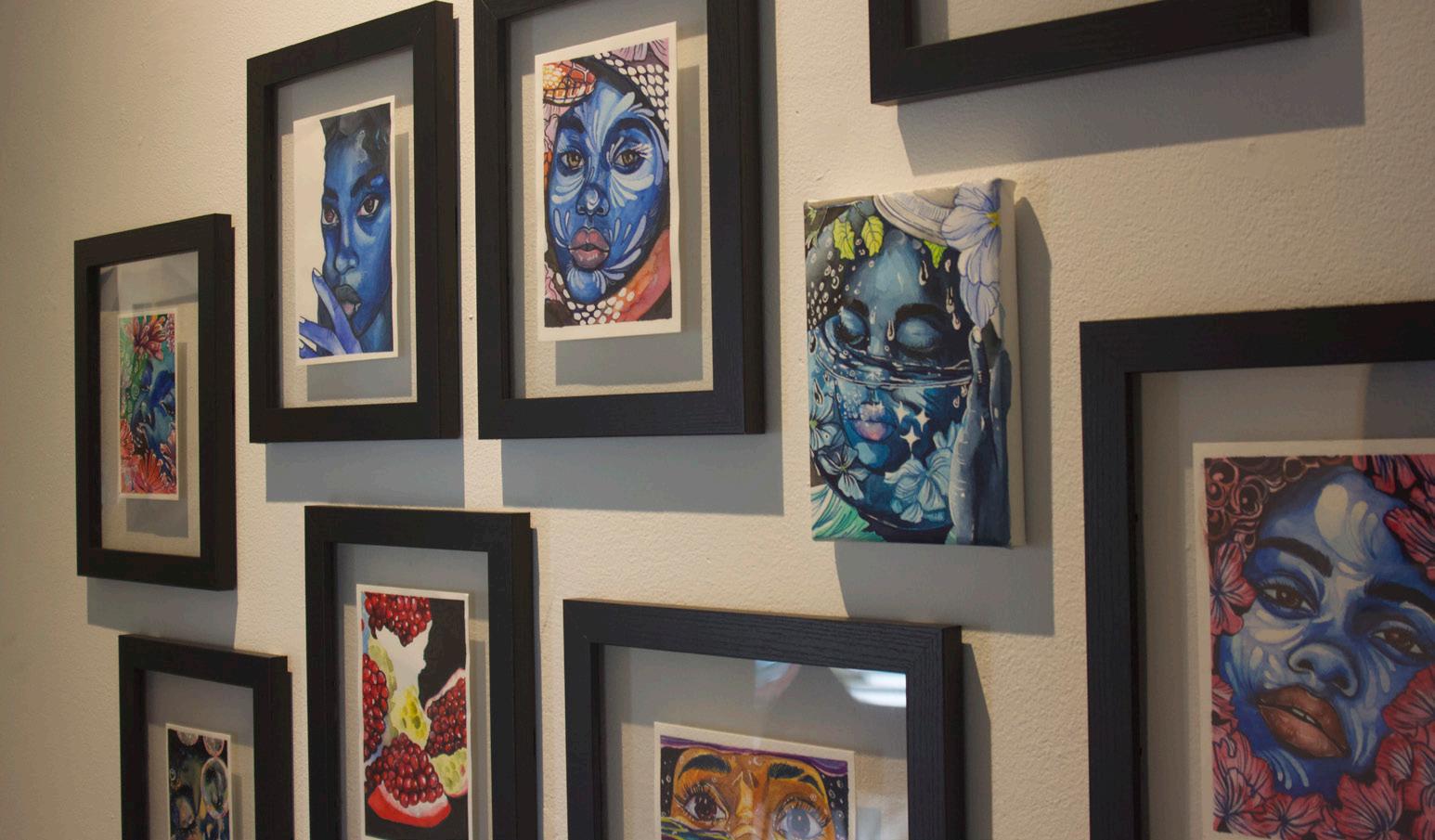


iiiiiEvery Saturday, between 10 a.m. and 3 p.m., the Riverside Arts Market comes to life beneath the Fuller Warren Bridge. RAM’s setup includes several booths where participants can sell their creations and offer their services. Items sold incorporate visual art, with painted, crocheted, and wooden works. This is extended to culinary art too, with different food trucks and baked goods available, and the live music that often plays for attendees.
iiiii “It is a collection of local artists and craft makers, farmers, [performers], bakers, [and more],” said art teacher Mrs. Carrie Santa Lucia. “I love seeing that so many creative people in our community have a place to share and show off their talents.”
iiiii Attending RAM is an opportunity to uplift Jacksonville artisans. Appreciating its diversity supports the creative works of Jacksonville artists.

iiiiiFrom its beginning in 1890 as a group of music enthusiasts meeting in founder Claudia L’Engle Adams’ house, Friday Musicale has expanded to the concert hall it is today. Over time, it has gained musical and historical significance, having booked performances by entertainers like opera singer Bidu Sayao and pianist Ignace Jan Paderewski. iiiiiLocated in the Riverside area, Friday Musicale continues to provide a stage for many local and touring artists in Jacksonville. Recent shows include a Tango Night and the Adam Larson band and among the upcoming shows is a Katie Mahan performance. In addition to these, Friday Musicale hosts a range of other events, and some of which are free of cost. The variety and accessibility of Friday Musicale’s performances ensures anyone can attend and have a great time.
















By OSCAR STONE, Staff Writer

“I am Moroccan, so I take a lot of trips to Morocco in the summer. One of the [memories] that really stands out to me was [when] my family and I were traveling. We were going up to a city called Chefchaouen and we did not have anywhere to stay. My dad told us he found a guy, [and] that [he] was fine with us staying at his house for the night. My family and I were pretty scared, but my dad told us he had it all under control. We trusted him and went along. Once we got there, the guy was nice, and it showed me that we Moroccans are some of the most hospitable people you will ever meet.”
—Zinab Loutfi, 11th
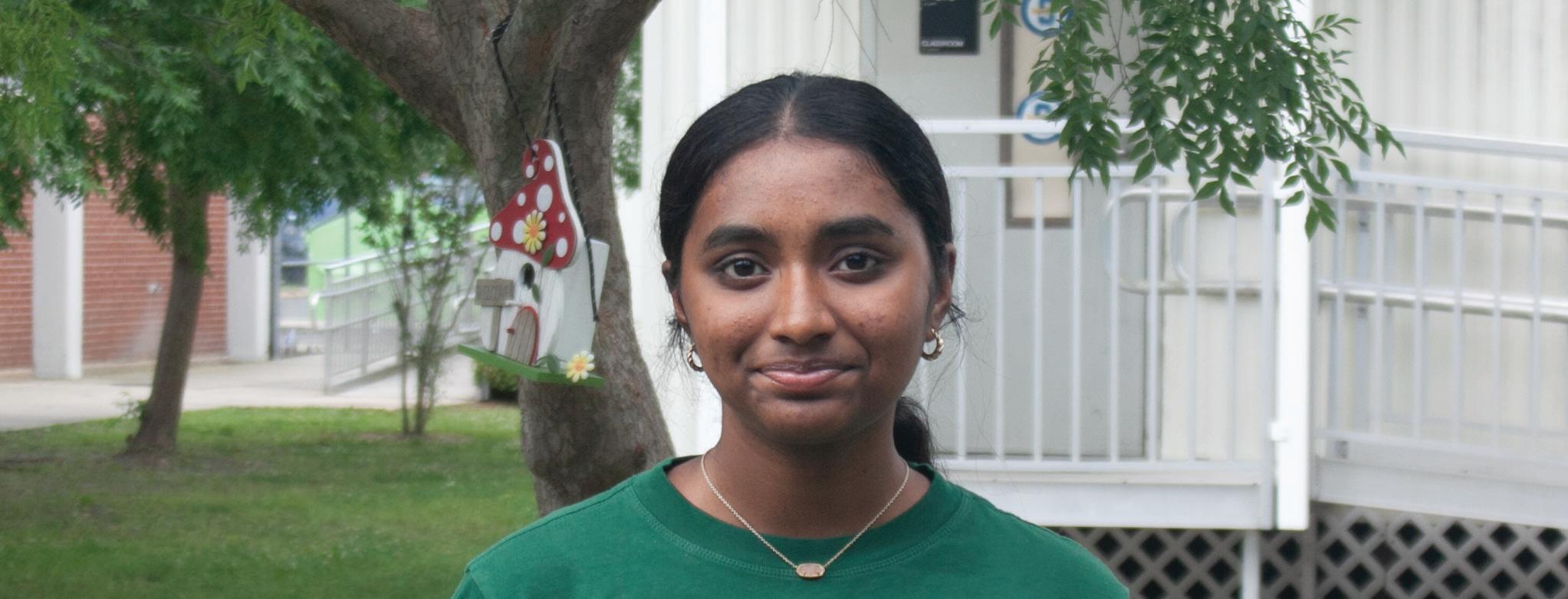
“One of the things that I really love doing is art. I am a very creative person and every year during art class we do an exhibition at the end. In middle school my teachers picked me to compete in a competition that is held at the downtown library. Art is really important to me because it is really a great outlet for my creativity and my feelings. It is hard to tell people about my feelings, so art gives me a way to calm down, and express myself. I once did a piece in the Cubist style, and that is probably my favorite piece, but my room is entirely covered in paintings.”
—Sloka Nadakuduru, 9th
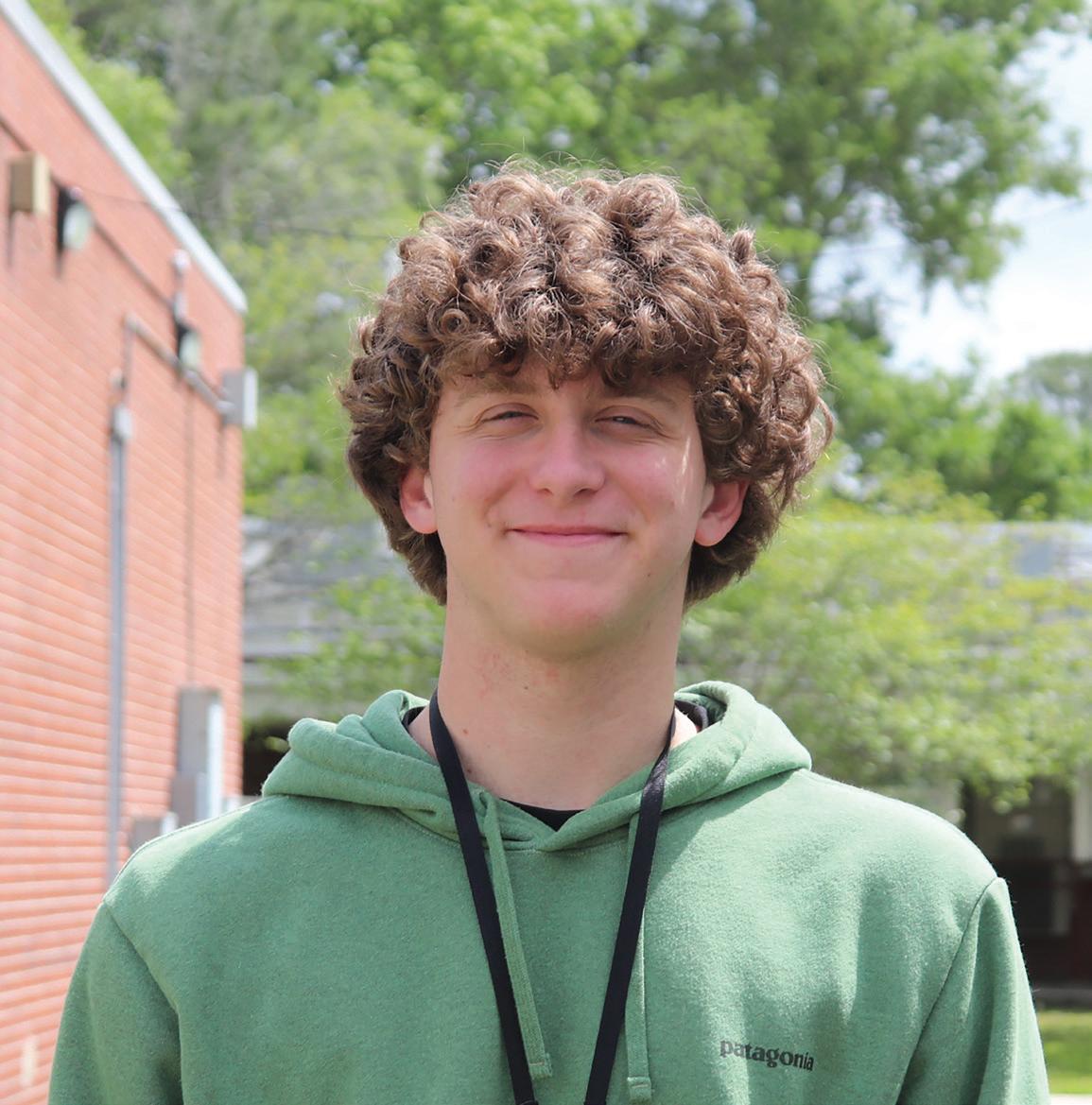
“When I was nine years old, I was playing hide and seek at my friend’s beach house, and I got stuck in between the elevator and a locked door. The elevator went up, and I was not fully on it, so I fell into the shaft and got stuck there. I was there for around thirty minutes just screaming and eventually someone had to call the fire department. [They] had to cut the door off. I was okay, but it gave me a huge fear of elevators.”
—Talmer Brown, 11th
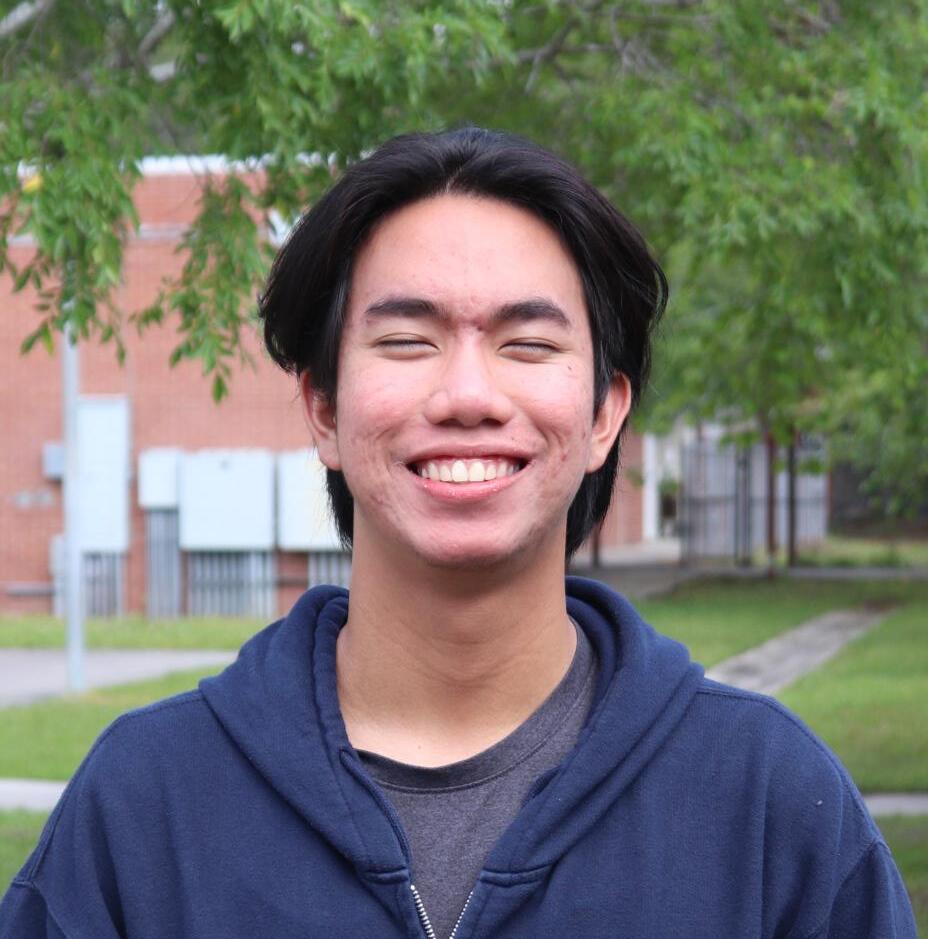
“I was born in Thailand in 2006, and the day I was born, the military of Thailand overthrew the prime minister. That is actually how I got my name. My mom called me her little fortune because I got her through the coup. The coup ended up being bloodless, and so I was not just her fortune, but I brought fortune to Thailand. The nickname just stuck and now that is what people call me.”
—Chaiyasaeng “Fortune” Suphakorn, 12th
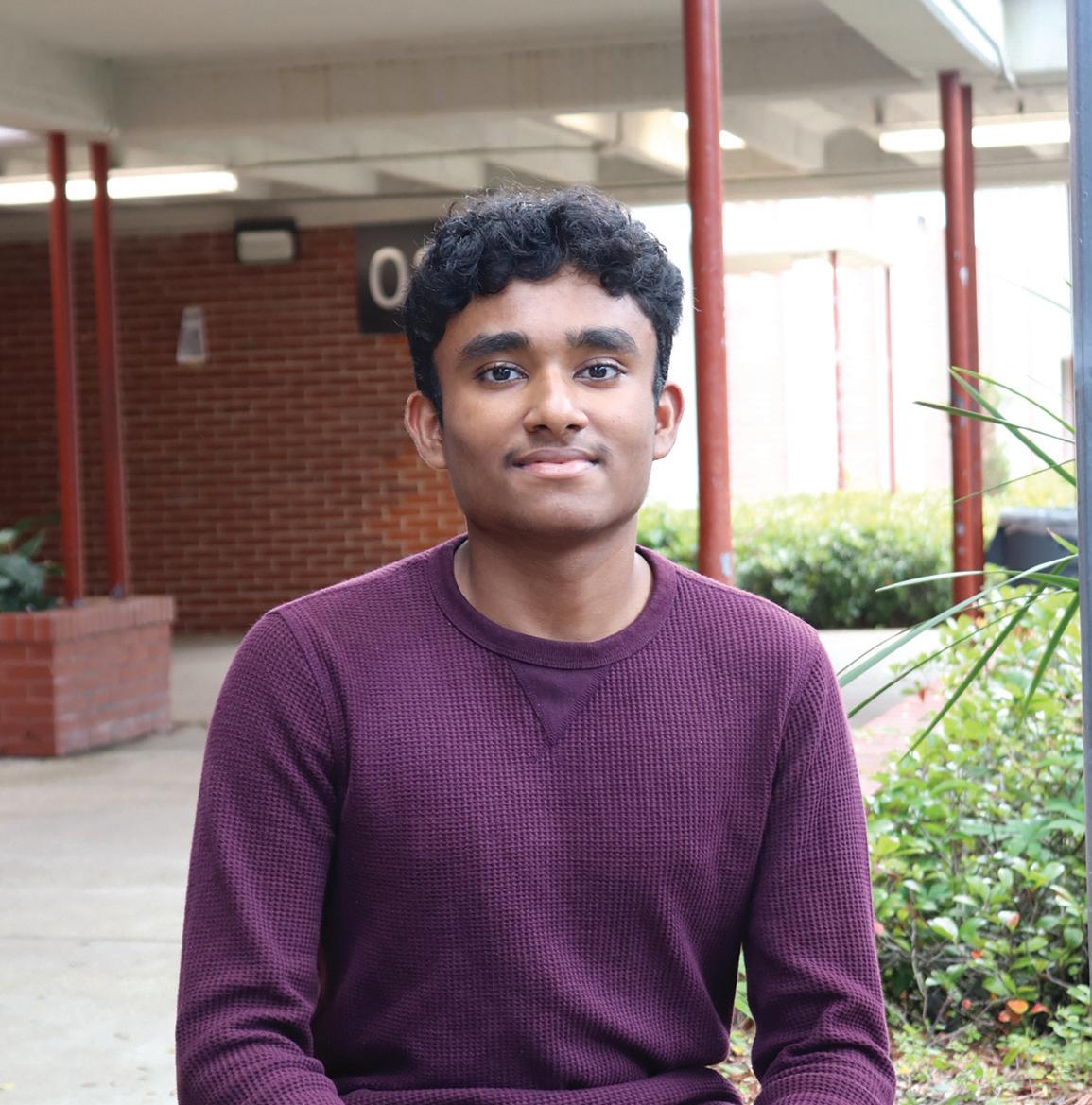
“I am a go-kart racer. On March 20, I had my Formula Four tryouts. I have been racing go-karts for three years now, but I am really excited to take the next step in what I hope will be a long career. This one event helped me see the potential challenges in my field, so it gave me the opportunity to improve overall.”
—Mahadevan Venugopal, 10th
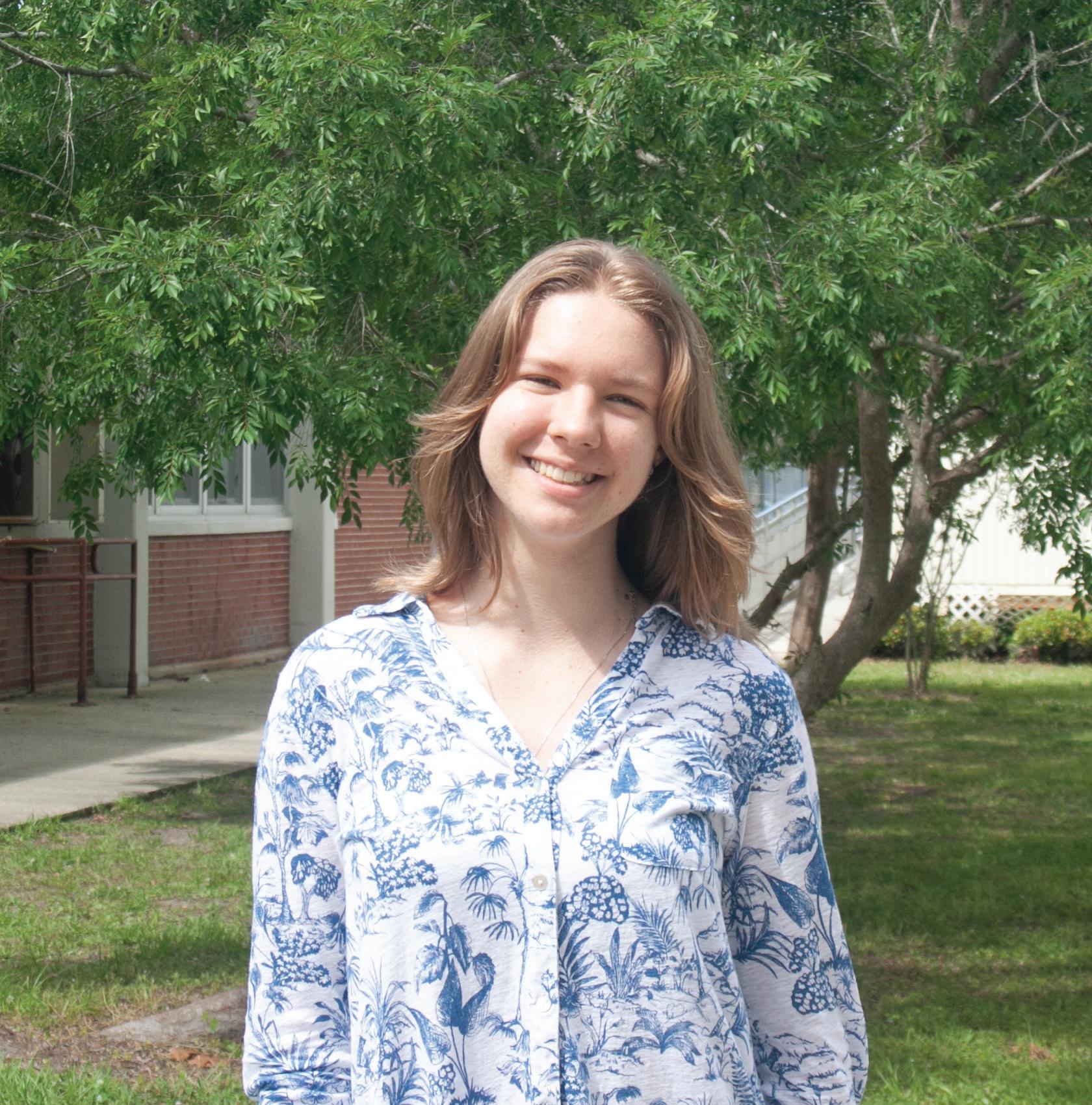
“I moved to Jacksonville from Ukraine three years ago, and my culture is a large part of who I am. I was born in Bilhorod-Dnisteovskyi, but mostly lived in Odesa. We have a very different culture, a very different approach to really everything: society, work, and family. I had to leave the country because of the war, but it has made me even more patriotic.”
—Yelyzaveta Soltanova, 11th
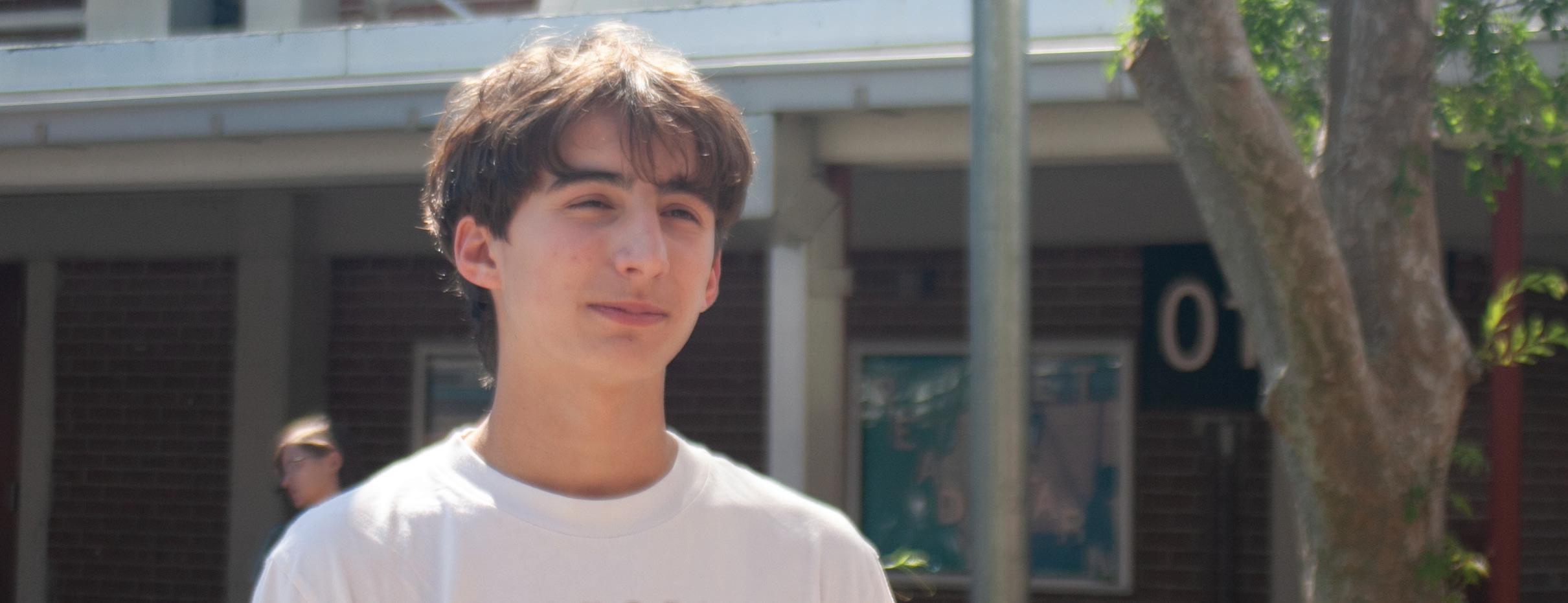
“When I took a mission trip to Jamaica, it really opened my eyes to a lot of new perspectives, and the hospitality of the people there. That really affected my faith. I have always been a [devoted] Christian, but this experience has really taken my faith to a whole new level. My morals and ideals have changed a lot in the last few years, and I think it has a lot to do with this one experience. I learned to be more humble and more grateful for everything. Since then, I try to live every day like I am still on that trip.”

Pep rallies are a long-standing Stanton tradition that bring students together, but changes could be introduced to amplify school spirit.
By SRIYA VEMURI, Staff Writer
Pep rallies at Stanton College Preparatory School have a long-standing tradition that celebrate students coming together and taking a break from classwork to have fun with their peers. While pep rallies already create a thrilling environment, there is always room to explore other new ideas that could make them even more appealing.
Rather than making major changes, small improvements to the structure could make a huge difference. A balance between maintaining tradition and incorporating new ideas would allow the pep rally to remain a highlight of school life while also entertaining all students.
A large part of the pep rally’s structure consists of repeated cycles of classes competing to be the loudest. However, adding new events to the already established structure may make it more interactive for the student body.
However, this is not to say pep rallies are not enjoyable. They are a vital tradition that encourage the unity of the school. The performances by the dance team, cheerleaders, the step team, and band showcase the school’s talent. That said, introducing new elements like more captivating games, surprise performances, and fresh themes could enhance the experience.
Starting off, one proposed change is having a grand entrance for each class. Instead of simply running into the gym, each class could enter through a hype tunnel which would feature fog machines and flashing lights, creating an energizing atmosphere. This would help set the tone for the rest of the pep rally.
“With safety concerns in mind, I love the idea of [a hype tunnel],” said junior Sri Chenchala, an SGA officer. “It would be a great idea, and it would be fun and hype for all the classes. It would also make the whole pep rally more exciting and something for all the classes to look forward to.”
After that, the band would enter the gymnasium. As an alternative to standing in one area, the band could be positioned among the classes on the bleachers, playing throughout the pep rally to energize the crowd. By having more opportunities to perform during the pep rally, the band could foster a sense of unity among the classes.
“I would personally like [the band playing on the bleachers] because we wouldn’t be so separated and out in the open all the time, and we also would
not get in the way of other groups performing. We usually have to condense toward the wall for the step team [since] their routine overlaps with where we stand, so I think that would be a cool [change],” said junior Christopher Doyle, a member of the band team.
An additional aspect of the pep rally that could be revamped is the tradition of the spirit stick. In a new format, each class officer could take turns hyping up their class before returning it to the Blue Devil. This would give classes the opportunity to showcase their class spirit in a creative way.
Another way to maintain an energetic mood is by making competitions more appealing. Alternatively, instead of relying solely on noise levels to determine the most spirited class, new high-stake competitions could further fuel class spirit and give students a chance to win points for their class.
“School spirit is based on how much hype is created by the officers and the Student Government Association and the best way to make school spirit better is to make it more interactive,” said freshman class officer Jiya Thakur. “More competitions between grades, better themes that people want to dress up for, and some surprise elements in pep rallies [would] keep things exciting.”
An idea for a competition between grades is a blindfolded obstacle course, where class officers guide students through the course, with the fastest participant winning class points. Another competition could be a game of musical chairs where players must grab an item shown on a sign and sit down as quickly as possible. Fun games like these encourage competition and better audience engagement, fostering school spirit as students cheer for their classmates. These games would also determine who fairly has the most points.
Lastly, to close out the pep rally on a high note, there could be a designated time for classes to showcase their class chants. The cheerleaders could run between the different classes and lead the popular “Do It” chant heard at many schools during football games. A fun chant like this would create a compelling and memorable finale.
These changes provide a glimpse of what Stanton’s pep rallies could evolve into. By addressing issues and incorporating new ideas, the pep rally can honor its traditions while becoming an even more engaging celebration for all students.
This plan is a new vision for pep rallies that combines fresh ideas with traditional elements.
1 RUN IT UP
Each class enters the gym through a hype tunnel with fog and flashing lights.
The band spreads out among the classes, playing hype songs to energize the crowd and introduce the next game.
4 GAME ONE
The Blue Devil hands the spirit stick to a student, who must hype up their class.
Either the Step or Dance team performs depending on a quarter toss.
2 GET LOUD 3 5
GAME TWO
Students will perform in a blindfolded obstacle course race, where class officers guide them.

6 CHEER
Cheerleaders run from class to class, singing the “Do It” song to see which class has the most school spirit.
Est. 1983 I Stanton College Preparatory School
2024-2025 Editorial Board
Grace Larson
Shravya Nalla
Amani Okero
Katya Sniriova
Rowan Kershner
Editor-in-Chief
Managing Editor
Layout and Design Editor
Business Manager
Digital Media Editor
iiiii
Devil’s Advocate serves as the official newspaper of Stanton College Preparatory School. It is produced quarterly by members of the Journalism class. The editors reserve the right to edit any material submitted into the paper for content, grammar, length and accuracy.
iiiiiDevil’s Advocate is a public forum for student expression, which encourages free exchanges of opinions concerning controversial and noncontroversial community and school related issues. The advertisements and ideas expressed within the newspaper are not necessarily those of the newspaper staff, Stanton administration, or the Duval County Public School Board.
iiiiiDevil’s Advocate accepts advertisements from all businesses in the Stanton community. The ad contract can be given to a staff member or newspaper adviser Mr. Larry Knight.
iiiiiReaders may contact any staff member or the adviser at (904) 630-6760 or at knightl1@duvalschools.org.
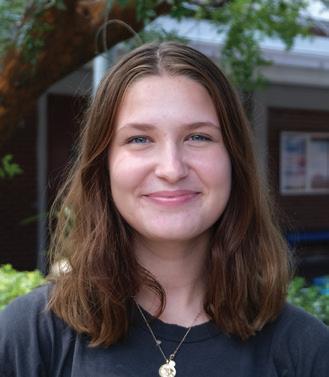
When I was 15 years old, my mom was diagnosed with breast cancer. I had just returned from a trip, excited for her to pick me up, so I could tell her everything—just as I had always done on our drives home. Only this time, I was so busy talking I failed to notice her silence. It was not until about halfway through the drive when she told me the news.
I just remember staring out the window, trying not to cry. Her diagnosis and subsequent recovery changed something in me. It has now been over two years since she became cancer free and from her resilience I have learned to pick myself up and live for the both of us.
At Stanton College Preparatory School, students, teachers, and faculty members alike have unique experiences that shape their identity. For some, like me, this experience is a loved one being diagnosed with a life changing illness. For others, it is rooted in their culture— perhaps a memory of their hometown, a recollection of their faith, or an event from their childhood.
Despite differences in origin, each student at Stanton has their own story, and in our Features Section we allow them to voice it. Compiled by staff writer Oscar Stone, this collection of memories, and experiences highlights the voices of Stanton, providing a glimpse into the diverse perspectives offered here. Being a member of this community is a privilege and there is something to be learned from these unique stories and the decision to share them.
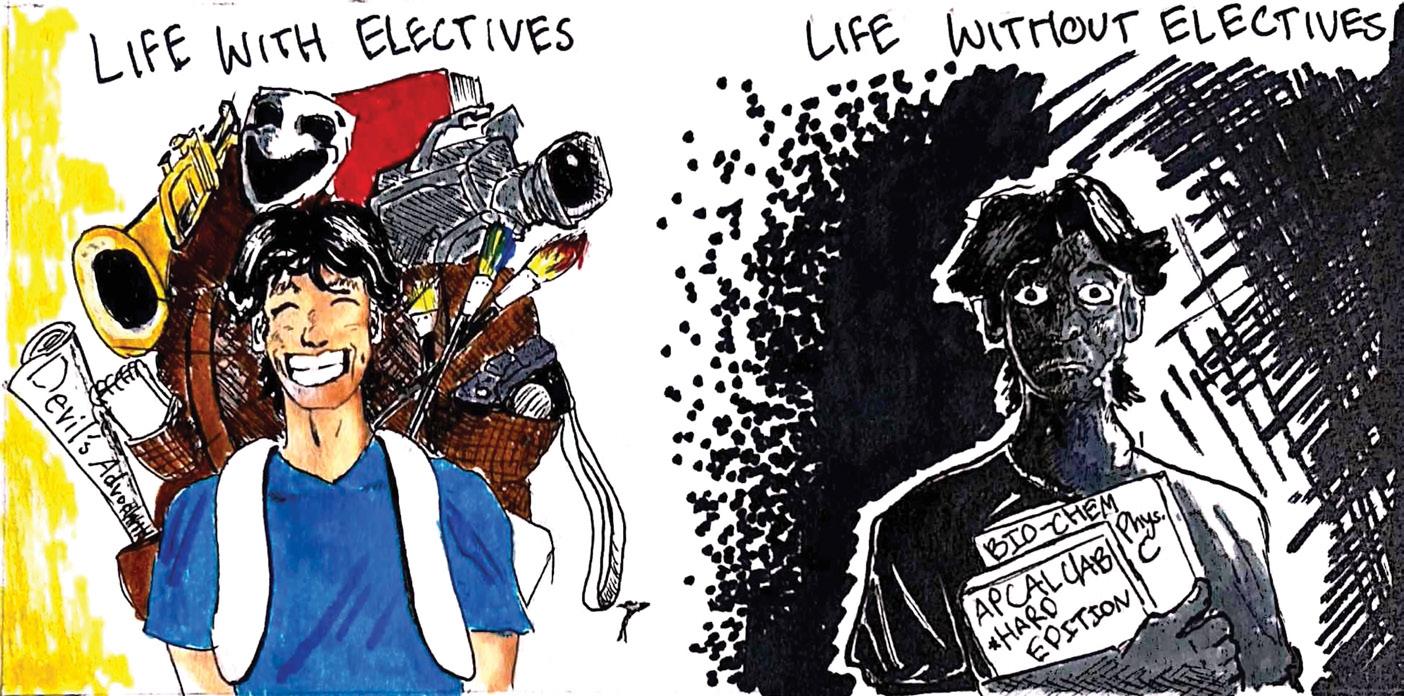
By THE EDITORIAL BOARD
With President Donald Trump signing an executive order on March 20, 2025 to dismantle the U.S. Department of Education, students, faculty, and families in the public school system are fearing the inevitable shifts in education policy as this decision threatens the fairness of various institutions. The recent change in presidential leadership and the actions following it have resulted in students and educators feeling uncertain about what is to come in our school system and those across the nation.
Since stepping into office, President Trump has proposed numerous changes to the U.S. educational system, causing further tension within the public education sector. One of his main directives, released on Feb.11, 2025, cuts $881 million in research funding for educational improvements, resulting in various public schools, including Duval County Public Schools, needing to quickly implement cost-saving measures. The future of public schools is at risk with state and national leaders neglecting their prominence in the U.S. education system.
For instance, U.S. Education Secretary Linda McMahon undeniably showcases this stance through her goals to shift towards state-led efforts. This decision also deeply affects marginalized groups, as they depend on the federal funding programs like Temporary Cash Assistance in Florida that help a public education become more affordable, creating opportunities to improve their current state of living. Additionally, President Trump’s decision to cut 50% of the U.S. education workforce puts teachers, government employees, and future generations in jeopardy as their futures in the education department are no longer guaranteed.
On the state level, Florida Gov. Ron DeSantis signed House Bill 123 in March 2025, which prioritizes funding for charter schools over public schools. This decision, alongside other factors, such as the decline in enrollment and lack of COVID-19 relief funding, has led
to a budgeting crisis in DCPS, where the School Board must handle a budget shortfall of $100 million. This fact alone has resulted in the Board’s decision to transition all nonmagnet schools to a traditional seven-period schedule for the upcoming 2025-26 school year. Although Stanton College Preparatory School is exempt from this transition because of the high number of students enrolled in advanced classes and programs, students and faculty still fear the massive setbacks that public schools are experiencing. For teachers, this decrease in class periods along with the increase in charter school funding means job opportunities will be limited.
Public schools are also worried about the risk of closure after President Trump signed an Executive Order entitled “Ending Radical Indoctrination in K-12 Schooling” on Jan. 29, 2025. The order states the government will stop funding any K-12 school that upholds Diversity, Equity, and Inclusion ideologies, like teaching Critical Race Theory. As a result, school districts across the state, such as Palm Beach County School District, have begun to review their DEI policies ensuring they are in accordance with the Trump Administration’s directives. It will not be long until other schools follow through with the same plan to avoid the risk of closure. Similarly, the “End DEI” portal created by the U.S. Department of Education allows anyone working or involved in the education scene to submit reports of teachers and faculty promoting DEI ideologies on school grounds, potentially threatening their positions. These past few months have been marked by growing fear within schools and districts nationwide. Though the current situation is troubling, the real source of this panic stems from the uncertainty surrounding the future of education, especially with President Trump’s plans still unfolding. As students are directly impacted by these changes, we must advocate for a just education system that prioritizes fairness over political agendas.
By ELLE WIGHT, Staff Writer
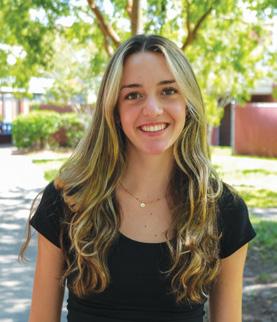
The daily schedule for some Duval County Public Schools will be drastically affected next school year due to district-wide changes, resulting in elective classes likely being viewed as less of a priority. Although Stanton College Preparatory School is exempted from these changes, funding cuts may have a large impact on elective classes and teachers across the district. Not only are most elective courses enjoyable for students, they are also extremely important for a student’s well-rounded education and future. Schools losing elective classes will have numerous consequences, including an impact on students’ mental and emotional health.
Electives are vital for education, connecting to a student’s overall wellbeing. High school students have plenty to manage, from strenuous core classes to athletics, clubs, and other extracurriculars. Research shows electives benefit students’ mental health. In a 2015 study conducted at the Federal University of Goiás by Psychiatrist Maria Amélia Dias Pereira and other professionals, results concluded elective courses produce numerous
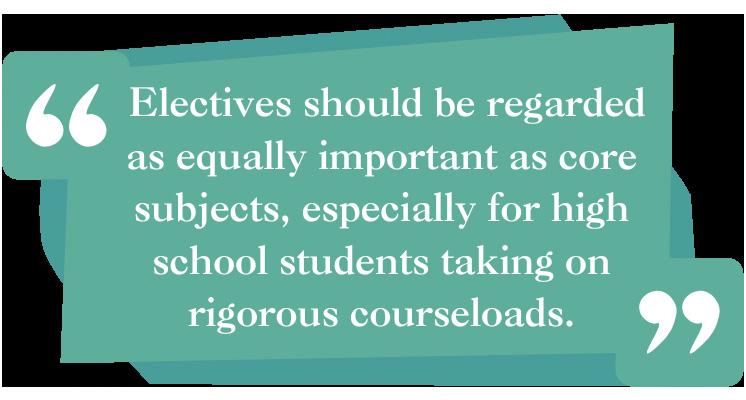
benefits in a student’s life, including reducing stress and adopting new stress-coping strategies. Similarly, in an online form conducted by Devil’s Advocate in March 2025, 92% of Stanton students among the 154 respondents voted electives beneficial to their mental health. Electives serve as a brain break to school days, alleviating student anxieties by providing mental health benefits.
Electives should be regarded as equally important as core subjects, especially for high school students taking on rigorous courseloads. Electives serve as an outlet for students to think creatively, offering a break from core classes. While electives at Stanton include Advanced Placement and International Baccalaureate courses, they also allow students to pursue their passions. This is prevalent at Stanton, where 92% of the 154 respondents to an online student form conducted by Devil’s Advocate in March 2025 believe electives serve as a creative outlet for exploring future passions. Core classes are crucial, but electives should not be considered any less important.

Elective teachers provide additional benefits, creating original experiences for students to engage in various areas of interest, including arts, foreign language, social sciences, and sports, fostering a positive learning environment. Funding cuts in the DCPS system will likely lead to larger class sizes and fewer elective programs. Unfortunately, these changes, including the proposed dismantling of the Department of Education, could result in many elective teachers losing their jobs, taking away immense opportunities for students. As a result, society may suffer from the effects, producing less well-rounded students who are crucial for future societal advancement. Teachers, students, and school officials will face their own challenges—with teachers experiencing new student disengagement.
With these changes in place, education will undoubtedly adjust for both students and teachers. Now more than ever, education should be viewed holistically rather than separated by core and elective classes. Every part of education is connected; each class fosters important skills that students can then use in others. Electives contribute to this connection significantly, providing students with tools to utilize in their future life situations and supporting their mental health in school. Electives are vital in having a well-balanced education and should be prioritized, despite local and national changes threatening their importance.
A common occurrence at Stanton College Preparatory School is for some students to pursue a “double science,” meaning they take two International Baccalaureate or Advanced Placement science courses at once. Students take one as their main science, and the other as an elective. Doing so has become more of a fad amongst students looking to stand out on their transcript. Taking two science courses should not be allowed at Stanton, as it causes significant anxiety and will not help a student in their future.
It is an ambitious undertaking, and the current Assistant Principal and former IB Coordinator, Ms. Tamala Simmons, is vehemently opposed to it. Her version of “no” was to invent “the contract.” For IB students, the contract is a form detailing the reality of taking two IB science courses in one school year. It must be signed by the student, along with a parent or guardian. Ms. Simmons says it is not about loving science, instead, it is about the time and commitment required to do well. She believes taking two IB sciences only works for a small number of students who are solely academically focused. At Stanton, that is a small
By NATHANIEL MILLER, Contributing Writer
number. The average student wants to participate in extracurricular activities and not just focus on their grades.
Even if one narrows in on grades, science is a highly rigorous subject. Science includes a wide range of fields; the terms “hard” and “soft” are often used to categorize sciences, according to Nature, a well-regarded academic journal. The “hard” sciences include physics and chemistry, and the “soft” sciences include psychology and sociology. IB science courses students take as their main science are all hard sciences. Unlike prior honors science courses, IB science courses require more than rote memorization, they require student application. Learning how to apply what they learned in their course to scientific situations included in the AP and IB science exam shows many students difficulties as the course matter includes many topics. Most students, aiming to be well-rounded, are likely to suffer difficulties in the time commitment and hard work required to pass two IB science courses.
Students currently enrolled in two science courses acknowledge the strenuous nature of having two sciences. Junior Sheyda Laghaei, who takes IB Biology and IB Chemistry, has expressed doubts. “I regret doing chemistry, because IB Chemistry exams are not easy,” she said. “If they
[Stanton students] want to have a good GPA, they shouldn’t double science.” Laghaei’s view is shared by others. According to a recent Devil’s Advocate student poll, where over half of the 154 respondents were IB, the majority said they would not take two IB science courses.
With popular student votes against taking two sciences, even in higher education, two IB science credits will not benefit much. It just means the student will have experience with those sciences and may skip the introductory level. In addition, not every college will waive a science requirement because they passed the AP Exam. There is not one universal AP system, so some universities may waive a science requirement while another may not. A student should not have the misconception that just because they passed the exam, they will not have to take a science course in college.
Taking multiple hard science courses at once is meant for college students, not high school students. Taking two science courses should be banned because it causes significant stresses and will have little effect on a student’s future. Only one IB or AP science course should be allowed to be taken due to the rigor involved. Stanton should not be made more rigorous than necessary.
